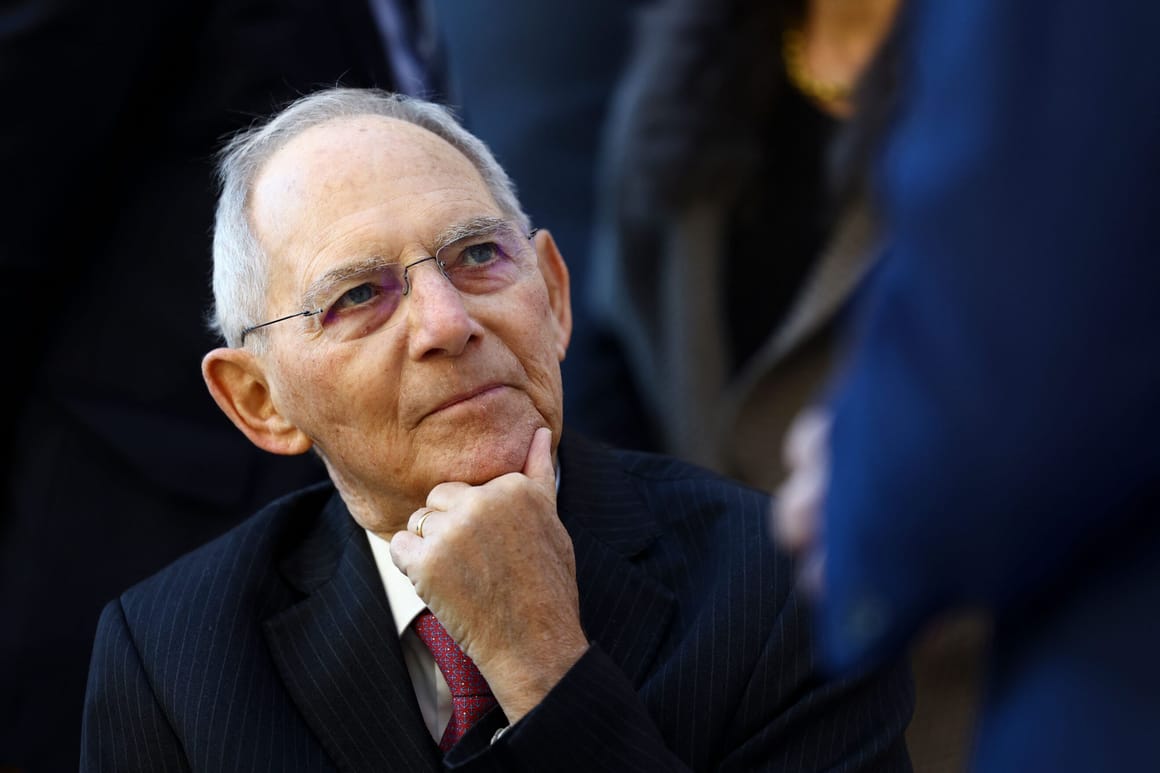Wolfgang Schäuble was a German politician who has often been hailed as the architect of German reunification. He is also recognised as a tough Finance minister who helped steer the eurozone through the debt crisis. He passed away on December 28, as reported by his family members to the media.
His political career spanned more than five decades. He was a member of the Christian Democratic Union (CDU) and was recognised as the longest-serving member of any democratic German parliament. During his long political career, he has held several different posts. However, some of the phases of his long career are the most remembered.
Wolfgang Schäuble as the Federal Minister of the Interior from 1989–1991:
Schäuble became a member of the Bundestag, the legislative body of Germany, by winning the constituency seat of Offenburg in 1972. However, his ministerial career began in 1984, when Helmut Kohl, the Chancellor at the time, appointed him as the Minister for Special Affairs.
Image Credit: Wikipedia
Later, in a cabinet reshuffle, he was given the post of Minister of the Interior on April 21, 1989. This was one of the most highlighted times of his political career. It was during this time that he led the negotiations on behalf of the Federal Republic of Germany for reunification with the GDR in 1990. He, along with the East German State Secretary, Günther Krause, co-signed the Unification Treaty on August 31, 1990, after the fall of the Wall of Berlin. Schäuble used to call this reunification “the high point” of his political life”.
However, nine days after the reunification of Germany, he was shot in the spinal cord and jaw during an election campaign event by a mentally challenged man. In this incident, he was paralysed from the waist down and had to use a wheelchair for the rest of his life. Though he returned to work only a few weeks after this accident, and became a key person in convincing the German parliament to move the reunited nation’s capital from Bonn to Berlin.
Due to his work, there was constant speculation that he would soon become the Chancellor of Germany, the executive head of the state, and the third highest and most powerful position in the country. However, he didn’t become the chancellor.
Wolfgang Schäuble as the Federal Minister of Finance from 2009–2017:
Image Credit: Wikipedia
In October 2009, Schäuble was made the Minister of Finance in Angela Merkel’s cabinet. At this time, his age was 67, and he was the oldest man in the cabinet and the longest-serving member of the parliament in the history of the Federal Republic.
It was in this post that he, along with Merkel, frequently took strict decisions towards some Southern European countries during the ‘eurozone crisis’ that began in 2008. In 2012, Schäuble, who was a leading advocate of austerity, went forward and rejected calls from the chairwoman of the International Monetary Fund, Christine Lagarde, to give Greece any more extra time to make additional spending cuts to rein in deficits. In a statement, he told the European Parliament that Greece’s debt crisis and the other crises it generated were a clear reason why European policymakers should not allow public debt to pile up indefinitely. But due to this decision of his, Greece President Karolos Papoulias accused him of insulting his nation.
In 2014, Schäuble helped Germany achieve what is now recognised as ‘schwarze Null’ or the black zero budget deficit. In that year, he had pushed through a national budget of 299 billion euros that allowed Germany not to take on any new debt for the first time since 1969. With this new budget, in the first half of 2016, Germany ended up recording an 18.5 billion euro budget surplus.
He has been described variously as the “personification of fiscal discipline” and “Europe’s foremost ayatollah of austerity” because of his no-nonsense approach to the eurozone crisis. His decision to strictly control spending has been attributed to having helped Germany’s rapid recovery from recession.
Wolfgang Schäuble as the President of the Bundestag from 2017–2021:
Image Credit: Trends & Cents
After the 2017 elections, Schäuble stepped down from the post of Minister of Finance and was instead nominated as the next president of the ‘Bundestag’, which is the legislative body of Germany. In his capacity as president, he chaired the parliament’s Council of Elders, which determined daily legislative agenda items and assigned committee chairpersons based on party representation.
In this post, he also worked to make sure to curb the antics of the far-right Alternative for Germany, which was the largest opposition party in the Bundestag. As the country’s second-highest-ranking official, it was also his task to oversee the opening session of the new Bundestag, including the election of his successor.
In 2021, Schäuble lost this office after the defeat of the CDU/CSU in the German federal election. However, he remained a member of the Bundestag until December 26, 2023.
Reaction of other German leaders on the passing away of Wolfgang Schäuble:
Image Credit: Konrad-Adenauer-Stiftung
After the news of Schäuble’s passing was released, several leaders across Germany remembered him and honoured the legacy he had left behind.
The current Chancellor of Germany, Olaf Scholz, said that he had shaped Germany for more than half a century, and with his passing away, the country has lost “a sharp thinker” and “a passionate politician.” Angela Merkel, in whose cabinet Schäuble served for 12 years, said that when she was a young minister, he was her “political mentor.”
Former UK Chancellor George Osborne posted on social media that Schäuble was a man of great stature who had unified his country and was the last of the living post-war Germans.
Former finance minister Yanis Varoufakis said history would “judge him harshly” for the strict and tough decisions he had to take during the eurozone debt crisis.
